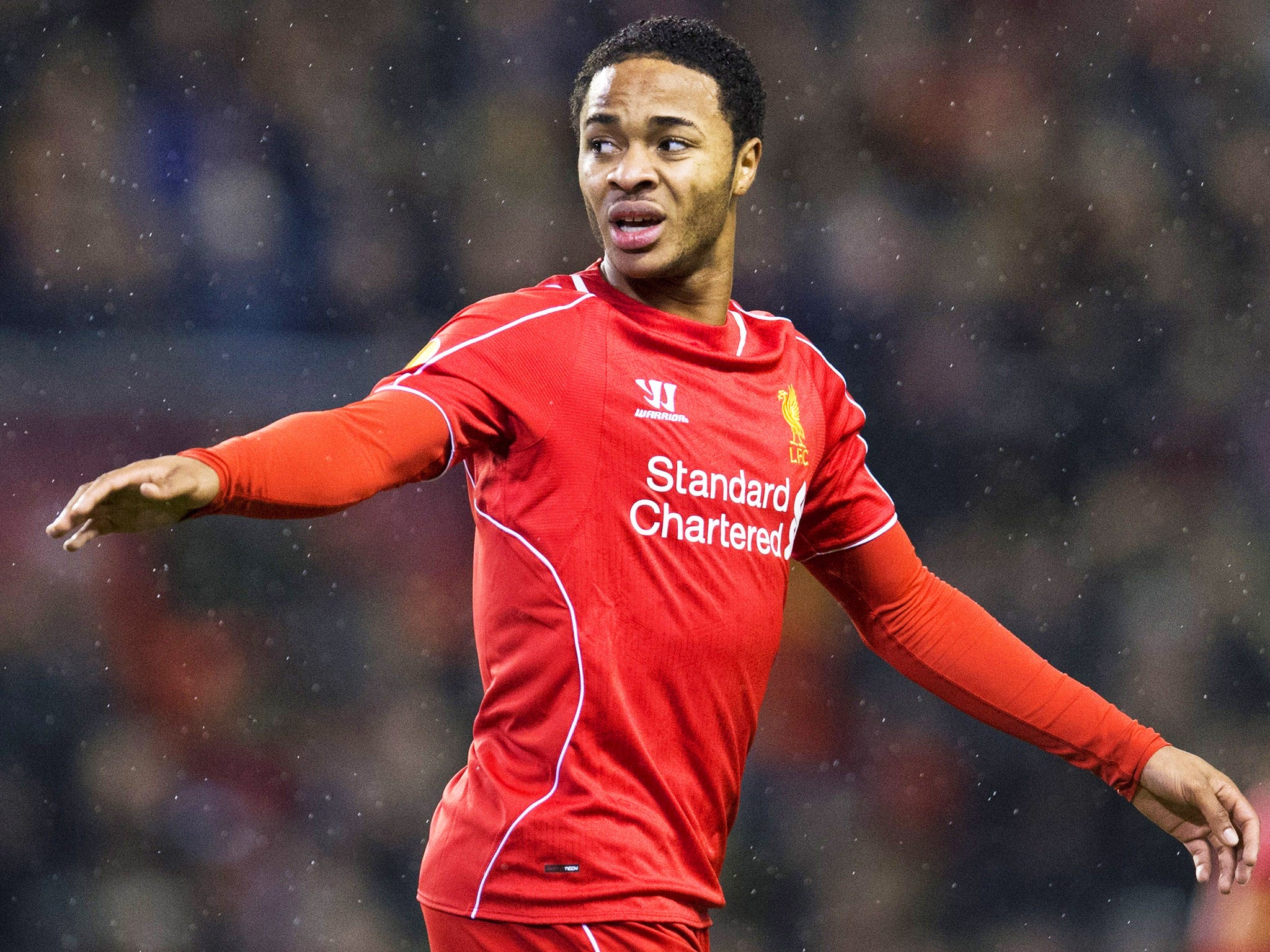Raheem Sterling: Liverpool should cash in on player, even if his sale hurts club's pride
COMMENT: His sale could say a lot about the club's status relative to rivals like Manchester City and Arsenal

Your support helps us to tell the story
From reproductive rights to climate change to Big Tech, The Independent is on the ground when the story is developing. Whether it's investigating the financials of Elon Musk's pro-Trump PAC or producing our latest documentary, 'The A Word', which shines a light on the American women fighting for reproductive rights, we know how important it is to parse out the facts from the messaging.
At such a critical moment in US history, we need reporters on the ground. Your donation allows us to keep sending journalists to speak to both sides of the story.
The Independent is trusted by Americans across the entire political spectrum. And unlike many other quality news outlets, we choose not to lock Americans out of our reporting and analysis with paywalls. We believe quality journalism should be available to everyone, paid for by those who can afford it.
Your support makes all the difference.When Liverpool finally signed Raheem Sterling in February 2010, they did so after months of prevarication before their minds were made up for them by a move from elsewhere. Sterling had already been noticed by Tim Sherwood, then a coach at Tottenham Hotspur – and then Everton came along.
It was Everton who invited Sterling to come to train with them for a week in January 2010, with the blessing of Queen’s Park Rangers who, in the Championship, had no option but to cash in with losses running at more than £10m for a second season in a row. Sterling had turned 15 the previous December but had already been training with the first-team squad aged 14 under Jim Magilton.
David Moyes’ invitation was for Sterling to spend time at Everton’s training ground to see how he liked the club. The prospect of losing Sterling to their nearest rivals was the tipping point and Liverpool committed to a big deal for the 15-year-old, potentially worth up to £5m for QPR.
If Liverpool are forced to sell Sterling this summer to Manchester City, Chelsea, Arsenal or overseas for £30m or more then, at the very least, this will have been a sensational deal from a financial point of view. In the age of the multimillion-pound teenage footballer, these are the deals clubs agonise over the most. The sums might be smaller than for older, established players but the risk is that much greater because it is so difficult to judge the likely career trajectory of a 15-year-old, as compared with the relative experience of a 25-year-old.
In many respects, Liverpool’s experience with Sterling has been a great success. They took a bold decision to spend a lot of money on a 15-year-old boy with no guarantees about how he might adapt to a new life in a new city. One only has to look at the money spent importing expensive teenage talent into Chelsea’s academy in the early years to know that, although it is possible to sell young players on at a profit, it is notoriously difficult to produce those who eventually attract the kind of transfer fees talked about for Sterling.
The context of Luis Suarez’s sale last year, as well as Steven Gerrard’s departure this summer, is what makes Sterling’s exit more painful for Liverpool. That and what it says about Liverpool’s status relative to clubs like City and Arsenal, where the player would not necessarily be assured of starting every game.
Yet Sterling was not an academy boy at Liverpool in the traditional sense, nurtured from childhood in the way that Gerrard, Jamie Carragher and Michael Owen were. He arrived as one of the best teenagers in the country in a deal in which Liverpool took a view on value and risk.
It has clearly reached the point where hanging on to him would be pointless as the player sees no future at the club. What the club’s owners, Fenway Sports Group, must see is that, once again, the question has become one of value. Their predecessors called it right in February 2010 when Liverpool signed Sterling for what was a lot of money, and this summer the club would be wise to cash in and realise a better price than they would in 12 months’ time.
Join our commenting forum
Join thought-provoking conversations, follow other Independent readers and see their replies
Comments